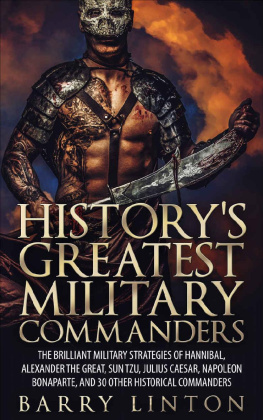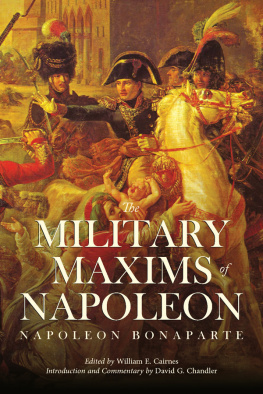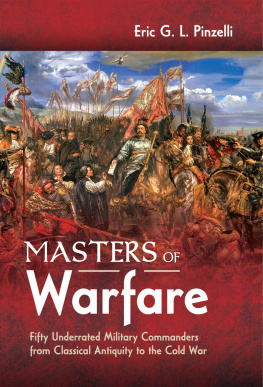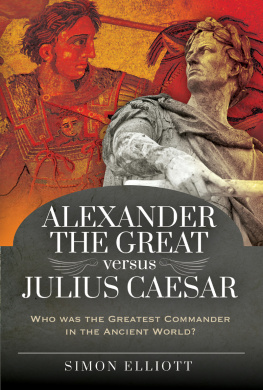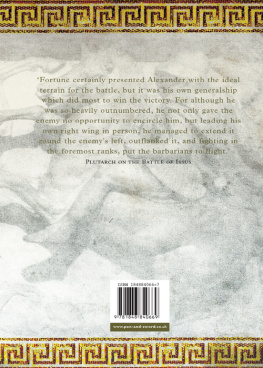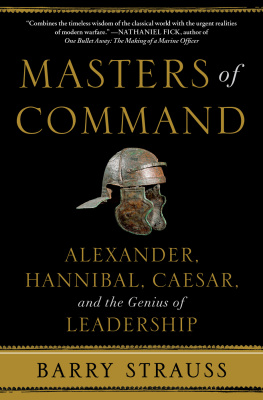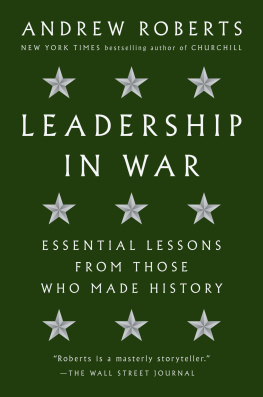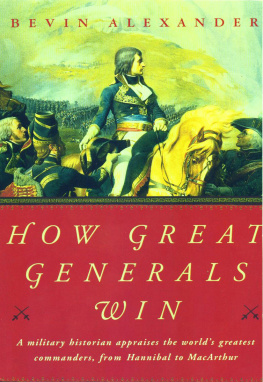Barry Linton - Historys Greatest Military Commanders: The Brilliant Military Strategies Of Hannibal, Alexander The Great, Sun Tzu, Julius Caesar, Napoleon Bonaparte, And 30 Other Historical Commanders
Here you can read online Barry Linton - Historys Greatest Military Commanders: The Brilliant Military Strategies Of Hannibal, Alexander The Great, Sun Tzu, Julius Caesar, Napoleon Bonaparte, And 30 Other Historical Commanders full text of the book (entire story) in english for free. Download pdf and epub, get meaning, cover and reviews about this ebook. year: 2015, publisher: Make Profits Easy LLC, genre: History. Description of the work, (preface) as well as reviews are available. Best literature library LitArk.com created for fans of good reading and offers a wide selection of genres:
Romance novel
Science fiction
Adventure
Detective
Science
History
Home and family
Prose
Art
Politics
Computer
Non-fiction
Religion
Business
Children
Humor
Choose a favorite category and find really read worthwhile books. Enjoy immersion in the world of imagination, feel the emotions of the characters or learn something new for yourself, make an fascinating discovery.
- Book:Historys Greatest Military Commanders: The Brilliant Military Strategies Of Hannibal, Alexander The Great, Sun Tzu, Julius Caesar, Napoleon Bonaparte, And 30 Other Historical Commanders
- Author:
- Publisher:Make Profits Easy LLC
- Genre:
- Year:2015
- Rating:3 / 5
- Favourites:Add to favourites
- Your mark:
Historys Greatest Military Commanders: The Brilliant Military Strategies Of Hannibal, Alexander The Great, Sun Tzu, Julius Caesar, Napoleon Bonaparte, And 30 Other Historical Commanders: summary, description and annotation
We offer to read an annotation, description, summary or preface (depends on what the author of the book "Historys Greatest Military Commanders: The Brilliant Military Strategies Of Hannibal, Alexander The Great, Sun Tzu, Julius Caesar, Napoleon Bonaparte, And 30 Other Historical Commanders" wrote himself). If you haven't found the necessary information about the book — write in the comments, we will try to find it.
Armed conflict has produced many of the great leaders in human history. Some fought purely for glory, others waged war out of desperation, and even more were driven by a sense of duty. Every leader has human qualities that transcend time and culture. The lessons taught, tactics used, and losses suffered stand as a testament to their lives and accomplishments. In his book entitled Historys Greatest Military Commanders author Barry Linton covers these leaders and great military commanders in fascinating detail, highlighting their distinguishable backgrounds and origins. Many were conquerors, some were innovators, and even others were liberators. One trait shared by all of these leaders is the willingness to adapt and overcome.
This book presents the true stories and struggles faced by these Commanders. Detailed battlefield plans are outlined, giving a step by step account of many important battles as well as information describing the context of each battle. The Commanders featured are drawn from all major periods of human history. Their achievements as well as their failures are highlighted, combined with the impact they had on the greater world and history. Follow along as we detail memorable historic greats such as:
Sun Tzu, Alexander the Great, Pyrrhus of Epirus, Darius the Third, Scipio Africanus, Hannibal Barca, Julius Caesar, Attila the Hun, Belisarius, Khalid Ibn Al-Walid, Charlemagne, Saladin, Genghis Khan, Timur, Edward the Black Prince, Suleiman the Magnificent, Oda Nobunaga, Yi Sun-sin, Hernan Cortes, Gustavus Adolphus, Duke of Marlborough, George Washington, Napoleon Bonaparte, Duke of Wellington, Horatio Nelson, Helmut von Moltke the Elder, Stonewall Jackson, Robert E. Lee, Ulysses S. Grant, Togo Heihachiro, John Monash, Erwin Rommel, Georgy Zhukov, Bernard Montgomery, George Patton.
Barry Linton: author's other books
Who wrote Historys Greatest Military Commanders: The Brilliant Military Strategies Of Hannibal, Alexander The Great, Sun Tzu, Julius Caesar, Napoleon Bonaparte, And 30 Other Historical Commanders? Find out the surname, the name of the author of the book and a list of all author's works by series.

